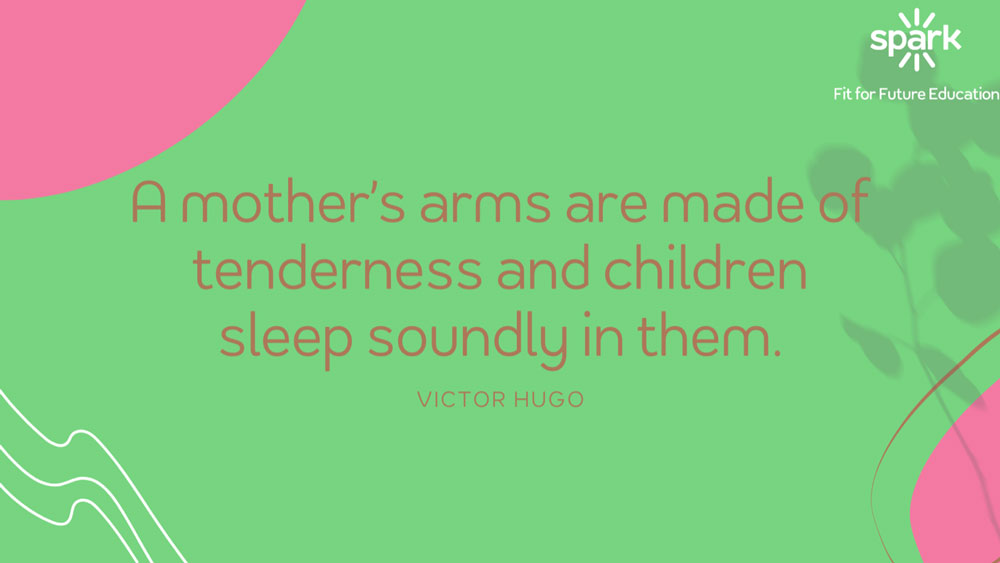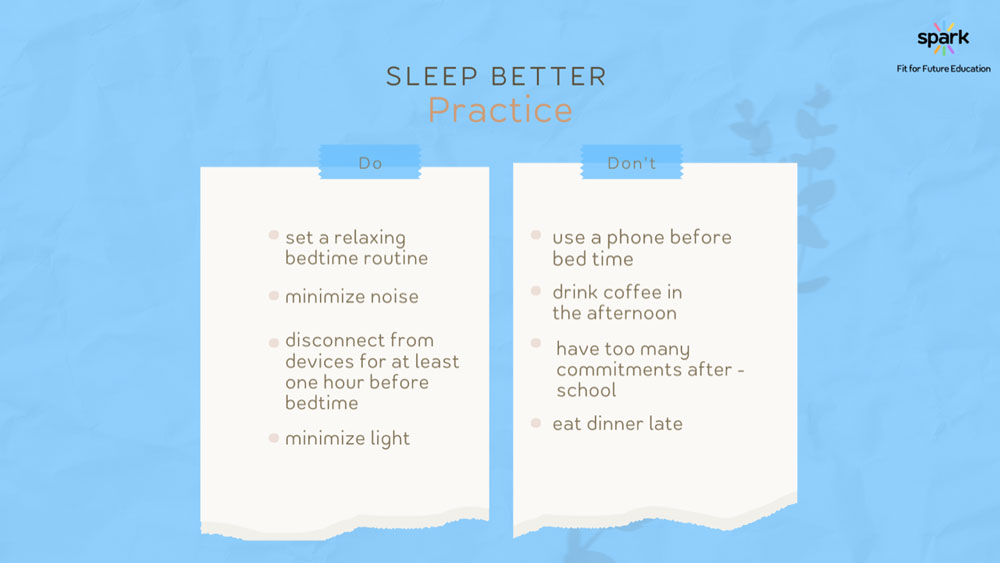We all need sleep. A rested brain is what we need to have that state of wellbeing, to pay attention to everyday things, to school performance and focus is important in the development of high school children especially. And what influences this the most is sleep. Having a good night’s sleep is essential for babies to grow and children of school age to perform at school.
Sleep deprivation can affect school grades, but this is not the most important thing high school children and their parents should worry about. Their focus, anxiety, and depression are more important than any grade, and wellbeing is essential to have a healthy life.

High school children need between 8 to 10 hours of sleep, more than adults, which comes from their active and ongoing learning lifestyle. And if these hours are not met, significant side effects can appear.
“I think high school is the real danger spot in terms of sleep deprivation,” said William Dement, the founder of the Stanford Sleep Disorder Clinic. “For the health and wellbeing of the nation, we should all be taking better care of our sleep, and we certainly should be taking better care of the sleep of our youth.”
The common causes of children and teenager sleep deprivation
To fight sleep deprivation, we first need to discover the factors that lead to sleep deprivation.
This starts with social attitudes, as this is what most affects teenagers these days. Being an active teenager is seen as better than being one that has a sleep hour every night. The social attitudes include the screen-based devices that keep teenagers connected to their social media accounts. According to a study, teens that put down their devices an hour before bed get an extra 21 minutes of sleep at night.
A hectic after–school schedule can also affect sleep – quality. Having too many commitments can interfere with a teenager’s sleeping time.
The leisure activities add to the after–school schedule and keep the teenager out of bed. These entertainment activities add up as gaming or TV is quite hard to reduce as time concerns.
Sleep disorders like insomnia, sleep apnea, nightmares, sleepwalking can also cause sleep deprivation.
Another factor is the hormonal time shift that we cannot control. These puberty hormones shift the teenager’s body o’clock one to two hours later when they would have needed to go to bed, and this makes teens tend to become “night owls”. If we cannot control these, we at least should try to control the other factors.

Effects of little sleep time or low quality sleep
Sleep deprivation can have a significant impact on the overall life of a teenager. And for those who ignore this, the depression, anxiety, and low school performance may seem the teenager’s guilt.
- Shortened attention span.
- Concentration difficulties. Insufficient sleep reduces attention and focus; thus, the degree of learning is decreased.
- Lack of enthusiasm
- Depression is directly linked to lack of sleep, and it affects the well-being.
- Slower physical reflexes come as a reduced sharpness and ability to take in and analyze information.
- Clumsiness
- Reduced school performance
- Reduced sport performance
- Moodiness is about the degree of quality sleep the teenagers have, and not enough quality sleep can make them irritable and upset.
- Aggression is directly linked to a lack of sleep.
While sometimes the above may seem to enter the “normal” mood swings category for teenagers, the ongoing situation should raise some questions. Moreover, we must see beyond the effects and discover the cause. This is an excellent way to fight this sleep deprivation thing and correct it.
Tips for parents to improve the sleep quality and increase the sleep time for their teenagers
Making yourself understood in a teenager’s world can be a rather tricky task; this is why arguing with them about their sleep schedule may not be the best way to handle the situation. The adolescent period is a period when they want autonomy and to take their own decisions. While it is no easy task to set up a bedtime schedule, research says that teens are happier in families with an organized sleep schedule.
This is why trying the following tips may work:
- Give your child permission to sleep later during weekends.
- Work together to make a schedule for stimulating activities like screen time or homework.
- Do not overcrowd your teenager’s plan after school.
- Encourage some nap time after school if they have time.
- See if your teenager’s schedule is too full and try to trim some activities together to have a more relaxed after school time.

Tips for teenagers to adjust to a sleep schedule
At some point, teenagers tend to realize there is something wrong with their focus and their overall wellbeing, and this is where they take it upon themselves to try to get more sleep and more quality sleep.
- Have a relaxing bedtime routine.
- Avoid screens for at least one hour before bedtime.
- Have the same bedtime routine every night for at least a month.
- Minimize noise, light and too hot or too cold bedroom temperatures.
- Have a regular wake–up time.
Conclusion
Children of all ages are affected by sleep deprivation, and sleep problems can appear at everyone. Making sleep a priority will help families handle this problem successfully.
However, if you feel like the sleeping problem becomes persistent and cannot be solved while also affecting children’s lives, the best is to seek the child’s paediatrician help.
